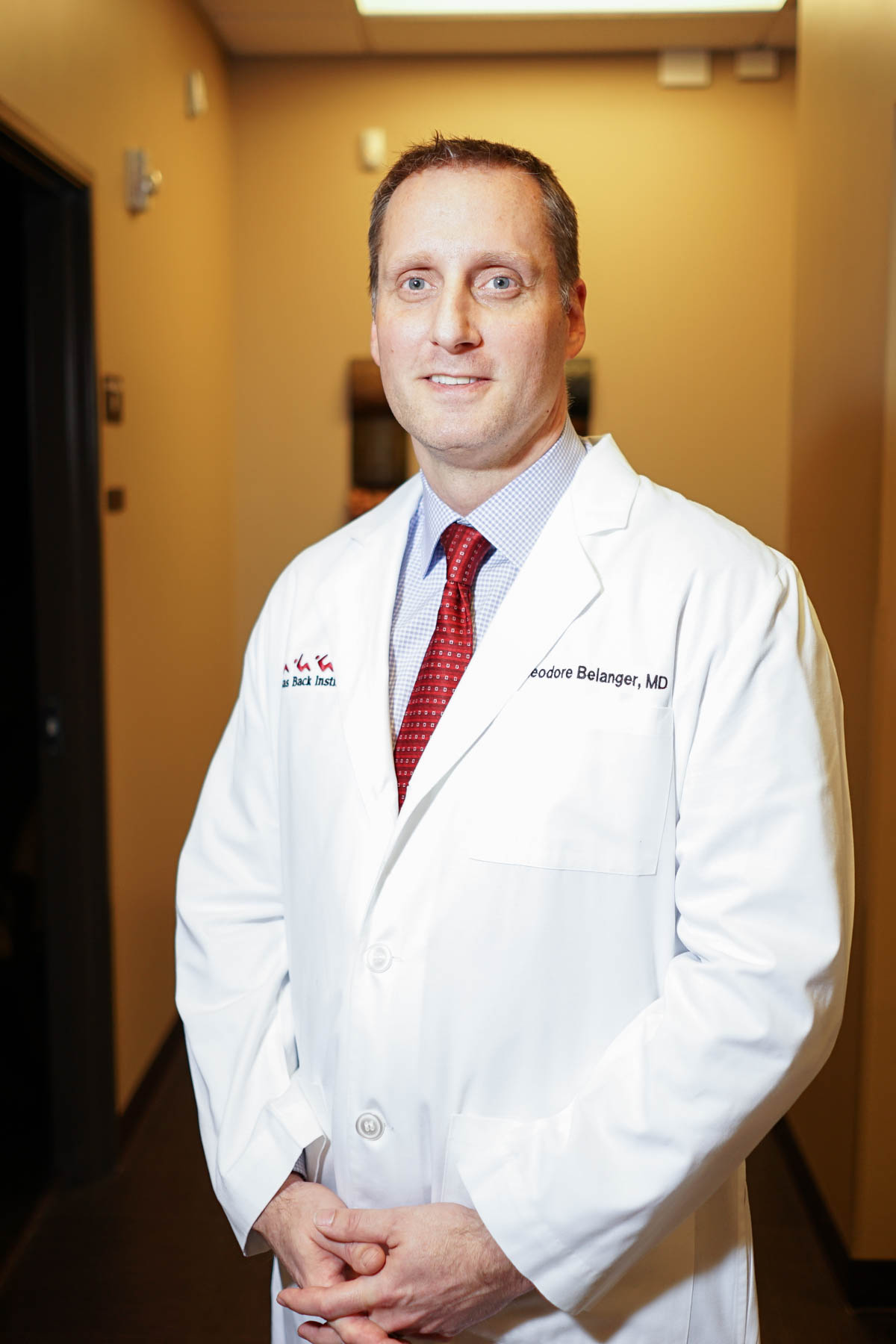Men taking charge is nothing new in most situations. At work, at the gym, on the sports field or even when a little spider invades the kitchen. When it comes to their back health and safety men can be known for being a little lackadaisical.
 Dr. Ted Belanger, an orthopedic spine surgeon at Texas Back Institute shares 5 mistakes men can make when it comes to their spine health.
Dr. Ted Belanger, an orthopedic spine surgeon at Texas Back Institute shares 5 mistakes men can make when it comes to their spine health.
1) They don’t exercise their back.
Guys go to the gym and exercise their “glamour muscles” to get strong and look trim, but they only rarely do any exercises to strengthen their back. Your back is made of the same tissues as your arms and legs and responds to exercise in much the same way. The old adage that it’s dangerous to exercise or use your back for strenuous activity is a myth. You can strengthen it just the same as you strengthen your biceps—with repetitive range of motion against resistance until you reach muscle fatigue.
2) They don’t do enough research.
Very often evaluation of back problems is sought without any careful research to determine who might be the best person to see. There are big differences in the training, background, certification, and experience of the various practitioners available to assess a patient with a complaint about their back or spine. The list includes chiropractors, primary care physicians, physiatrists, pain management doctors, orthopaedic surgeons, neurosurgeons, and orthopaedic spine surgeons. Among these, no specialist has more training and experience assessing and treating musculoskeletal conditions than an orthopaedic surgeon. Most of the others on the list either have very little musculoskeletal training (neurosurgeon) or have no experience at all in the surgical treatment of spine conditions (all the rest). An orthopaedic spine surgeon is in the best position to diagnose and treat a patient with a back/spine problem, whether or not they need surgery.
3) They don’t ask enough questions.
Patients often present for a second opinion to our clinic. A common element of their frustration and sometimes confusion is a lack of understanding of their problem. This can be avoided by insisting your questions be answered the first time around. Bringing a list of standard questions is a great way to make sure you are communicating well with your doctor. Good questions are: What is my diagnosis? What will happen if I don’t do anything about it? What are my options to treat it and what can I expect from the treatment? How does the treatment work, exactly?
4) They don’t recognize the difference between amateur and expert advice.
People often put as much weight on their neighbor or friend’s back advice as they do their doctor. While good-intentioned, the patient should at least recognize that their doctor, particularly if they are an orthopaedic spine surgeon or neurosurgeon, has much more insight and understanding about the diagnosis and treatment options. A common comment made by patients and their friends and family is “back surgery doesn’t work”. But that’s a drastic generalization that simply isn’t true. There are many different kinds of back surgery (discectomy, fusion, disc replacement, decompression, etc.) and many different reasons to undergo back surgery (degenerative conditions, fractures, trauma, scoliosis, deformity, tumor, infection). Whether or not surgery is successful depends largely on the diagnosis you are treating, the details of the workup, the execution of the surgery, the choice of surgical technique, and the alignment of the expectations of the patient with what the surgery can accomplish. Orthopaedic Spine Surgeons know this better than anyone else.
5) They too often think their back problem is hopeless and they just need to “live with it”.
Patients are often afraid to seek advice about surgery because they are afraid. They should think of the office visit the way the doctor does: a consultation to answer questions and provide information. The decision about what treatment to participate in always rests with the patient. If you are still not sure after visiting with a doctor, feel free to do more research, ask more questions, and seek more advice from experts. Sometimes second or even third opinions are necessary to come to a decision about how to proceed.



